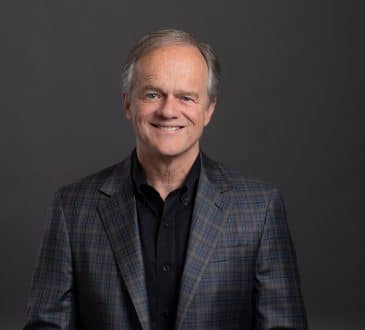New Business Creation Boomed During the Pandemic: Challenges and Opportunities for Today’s Business Leaders

Something exciting happened starting in June 2020: far more new businesses were formed than before the pandemic. Business applications were 83 percent higher from June 2020 through October 2021 than in the ten years before the pandemic. Usually, we think that a recession causes people to delay or discard ideas to form new businesses as the economy seems less promising. Instead, the opposite happened during the pandemic.
Not all of these new business applications will become new businesses, but a sizable fraction will. A business application is needed to start a new business, but many applications never become actual businesses. The Census Bureau tracks what kinds of new business applications have historically turned into businesses with paid employees. These kinds of applications were nearly 50 percent higher in 2020 and 2021 than they had been in 2019. Yelp, which tracks business listings on its website, also found a surge in new business openings.
And here’s the really good news: After what looked like a slowdown in 2022, business applications increased again in 2023 as did new business listings on Yelp.
What is so surprising about this pandemic increase is that entrepreneurial activity had been falling for decades before the pandemic. In 1980, 11.8 percent of firms were less than a year old and they employed 3.1 percent of workers. In 2019, only 8.2 percent of firms were less than a year old and they employed only 1.8 percent of workers. New business starts have fallen in all states and nearly every city, so it wasn’t just some states with restrictive regulations or taxes reducing startups.
What could explain this new business boom and what can today’s business leaders learn from it? First, any kind of economic disruption provides opportunity as well as risk. The massive changes during the pandemic as businesses shutdown and retail moved online provided an opportunity for entrepreneurs to fill a gap. Many of the new businesses in 2020 and 2021 were for online retail as demand for online shopping surged. On the other hand, new travel, accommodations, and home services businesses led the way in 2023 as demand for these services boomed.
Second, access to capital matters. As I show in my book, The Pandemic Paradox, the unprecedented pandemic relief and individual spending reductions meant many people had more money on hand than ever before. Financial security increased substantially. Rather than let that money sit around or spend it, many people saw it as an opportunity to invest in their new idea. For instance, new business applications increased soon after Economic Impact Payments sent thousands of dollars to most Americans.
The new entrepreneurs are more diverse. Excitingly, new business creation was especially high in high percentage African American areas where access to capital had been a long-standing problem. Improved finances meant that many people who had a great idea but not the access to capital to make it happen could pursue their dream. By briefly giving more people access to capital and financial security, we may have unexpectedly jumpstarted economic growth. Something similar happened in Sweden before the pandemic. Sweden’s generous social safety net encouraged entrepreneurial risk taking.
Third, remote work has reshaped the business landscape. While it was certainly possible to start a new business with a national customer base and remote employees and clients before the pandemic, it got much easier after 2020 made the remote experience much more common. The 2023 increase in new businesses measured by Yelp are concentrated in places that experienced an influx of remote work migrants such as Idaho and Vermont. Some cities and states, including Vermont, even gave remote work grants to encourage people to move there.
Remote work also made it easier to get a new business off the ground while staying employed. The time saved from not commuting freed hours each day allowing some remote or hybrid employees to start new businesses on the side. Remote flexibility made it possible for entrepreneurs to switch roles seamlessly without quitting their day job. Of course, having a side business may create a management problem if the employee is no longer doing her job well. But many employees and business leaders had part time jobs before the pandemic—from being a landlord, to serving on another company’s board of directors, to being a DJ—and the solution to any performance problem is the same now as it was then: manage and, if necessary, fire underperformers. Anecdotally, I suspect that the new breed of remote entrepreneurs were mostly high performers at their regular jobs who might have chosen to quit without the flexibility. Starting and running a new business is not for the lazy or complacent.
Finally, around half of these new businesses will fail within five years if the past is a guide. A lot has to go right for a new business to succeed. While failure is difficult, this kind of creative destruction offers opportunities as well. The new entrepreneurs will bring their hard-earned experience to their next startup or employer. Existing businesses may have the opportunity to acquire a struggling business that couldn’t quite make it but has a solid foundation or hire someone with great ideas.
But half of these new businesses will thrive and grow. The entrepreneurs who started them will be more diverse and spread out across the country than ever before. The business leaders of today have the opportunity to help welcome and mentor the business leaders of tomorrow.
Written by Scott Fulford.
Have you read?
Ranked: Richest Countries In Africa, 2023.
Report: Biggest Car Manufacturers by Revenue, 2023.
Ranked: Richest comedian in the world, 2023.
Cities with the Best Work-Life Balance in the World, 2023.
Ranked: Most digitally secure cities in the world, 2023.
Add CEOWORLD magazine to your Google News feed.
Follow CEOWORLD magazine headlines on: Google News, LinkedIn, Twitter, and Facebook.
This report/news/ranking/statistics has been prepared only for general guidance on matters of interest and does not constitute professional advice. You should not act upon the information contained in this publication without obtaining specific professional advice. No representation or warranty (express or implied) is given as to the accuracy or completeness of the information contained in this publication, and, to the extent permitted by law, CEOWORLD magazine does not accept or assume any liability, responsibility or duty of care for any consequences of you or anyone else acting, or refraining to act, in reliance on the information contained in this publication or for any decision based on it.
Copyright 2024 The CEOWORLD magazine. All rights reserved. This material (and any extract from it) must not be copied, redistributed or placed on any website, without CEOWORLD magazine' prior written consent. For media queries, please contact: info@ceoworld.biz
SUBSCRIBE NEWSLETTER








